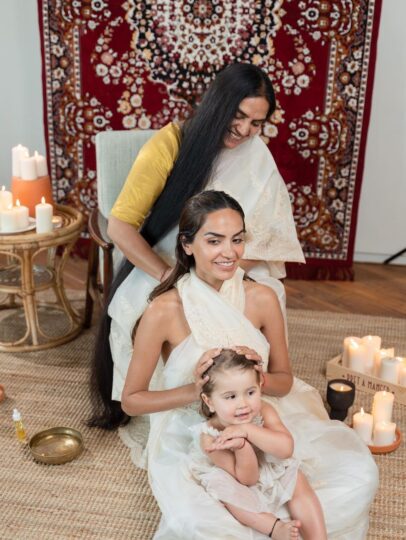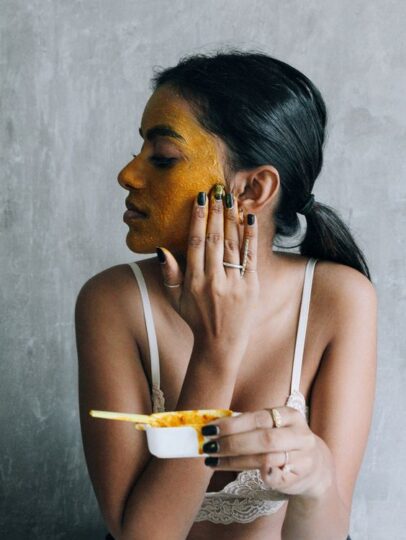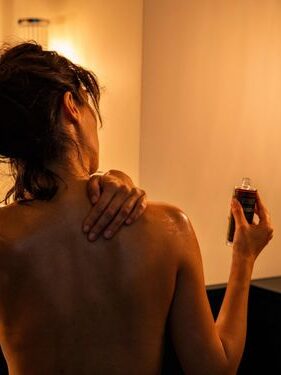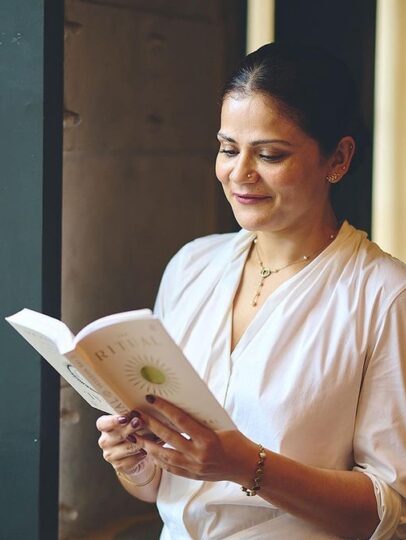Reminisce about the bi-weekly hair oiling sessions that your mother would sit you down for, a visit to your favourite restaurant with family on weekends, the multani mitti face pack that your grandmother would prepare for you during peak summers, or simply the days when you’d savour a plate of juicy, seasonal fruit; don’t you think that most of the rituals that played a significant part of your growing years have metamorphosed into heart-warming memories today? That’s how powerful they are. There’s something almost religious about these sometimes-banal practices, in how they come from traditions rooted across the cohorts in your lineage, unique just to you. Let’s embark on the journey of deciphering rituals and the holistic emotions that are tethered to them.

Rituals Can Mean Different Things To Different People
“A ritual implies intention and some kind of consistency—that’s what sets it apart from a one-time activity. It also holds a lot of importance, especially for someone who follows any,” says psychologist and intimacy coach, Pallavi Barnwal. For Vasudha Rai, beauty editor and author of Glow: Indian Foods, Recipes and Rituals for Beauty, Inside and Out, a ritual is something that provides an opportunity to take a pause and snap out of stress. “Rituals can ground us and induce a sense of balance, leaving us refreshed and revived. It also adds a little bit of magic to our everyday lives,” she says.
According to third-generation ayurvedic healer Nidhi Pandya, a ritual is a precursor to a routine. “Before someone actually builds up a routine, it all begins with a certain ritual—be it one that’s passed down the family or something new that you’ve picked up on for yourself,” says the expert who is also of the opinion that a ritual, which may not hold paramount significance when you subscribe to it, may eventually create a substance of its own through the means of emotions, memories or a particular phase in life. Pandya also highlights that with the passing of time, these very rituals, that surfaced into your life out of the blue, may translate into a solid modus operandi. “Rituals, for me, equal spaces of warmth, something that is known [to me] and thus, is very comforting. They are small practices that keep us connected to ourselves. Because they are predictable, it also brings a certain sense of comfort and joy,” says luxury beauty content creator Anushree Aneja.

How Do Rituals Stimulate Emotions?
If you delve into the fundamental essence of rituals, you’ll come to realise that they bear the power to evoke emotions. Think about any of the aforementioned rituals or something similar that you stayed committed to over the years, and the first thing that flashes in your head is what we’re talking about. However, rituals possess a stronger faculty—augmenting your holistic health. “We’re always working with a flight-and-fight mode, leaving us stressed and boosting our cortisol levels, so being thorough with a ritual, even if it’s something as simple as taking an evening walk or enjoying your morning cup of coffee, really helps us feel rejuvenated and calmer,” says Rai, establishing a clear association between rituals and stress-busters. Pandya is an advocate of these repeated acts, given that their conversion rate (into routines) is very high. “Unlike a distortive addiction, that makes you yearn for more and more of the substance, a ritual is that retainer which keeps you grounded, brings peace and not craving; it’s immersive and goes on to become a part of you.”
Plunging into the deeper facets of how such routines influence health, Barnwal says, “Our emotional brain dictates our emotional health and how we feel in a particular moment. However, one cannot forsake the logical brain’s contribution to long-term happiness and security either. Rituals, in my opinion, create a connection between both [the brains]; you may choose to do something for the first time due to a peculiar emotion but you are likely to stay consistent with it because you’ve recognised its value and importance.”

A Deeper Connection
While the smaller, day-to-day acts stem from your personal preferences that are also subject to evolution over time, the ones inspired by your family may feel more significant. It is these that may allow you to feel closer to the cultural wisdom of your ancestors. “As Indians, culture is a big part of our being. And using rituals as a medium to stay connected with your culture is something people have been doing,” believes Barnwal, who considers dressing up in a sari, listening to Indian classical music and watching retro cinema as her rituals. “I also feel that there is some sort of ancestral energy in the rituals that have been passed from one generation to the other; a mother narrating an anecdote from Mahabharata to her children is one example,” Rai says that all the ayurvedic rituals do help you keep in touch with traditional knowledge. “Culture-wise you can refer to the various ragas for the different moods that they stand for, but I reach out to these rituals for their benefits. Having said that, there’s a reason why they’ve stood the test of time and are still prevalent today,” cites the beauty guru.

Meditative Routines
“My morning rituals include oil pulling, tongue-cleaning and cleansing my eyes with pure rose water. I love daily face massages and if I have the time, I also go in with a face mask later,” says Rai. “Another ritual that I haven’t actually mentioned in the book is that I love preparing my post-workout meals myself—it’s meditative,” adds Rai. She claims to have seen an evident improvement in her oral and skin health by the virtue of the beauty rituals while the meditative ones have helped her find answers and ideas and befriend calm and composure. “The tangible benefits might be seen over time, but don’t essentially focus on that. When I look back today, Pranayam really helped me tackle rosacea. Consistency really makes everything effective.” Aneja swears by a combination of classic and modern rituals, “I follow double cleansing every night. And, getting a tel maalish fortnightly is something I’ve grown up with and has stuck with me since childhood. My dadi also passed over the habit of indulging in haldi besan masks often.” She also swears by having a masala chai with a small snack since it makes her feel closer to home, even when she’s juggling countries. “These rituals, big or small, are a bridge between our past and present,” states Aneja.
Pandya loves indulging in abhyanga or a full-body massage using oils. “It’s a very self-loving act,” she says. “I take out the time to do this every day. The process not only grounds my vata but also serves as a reminder to show some gratitude towards everything that lies within me.” She also swears by the ritual of nasya—which refers to using an ayurvedic oil to clear up sinuses, lighting up agarbattis and drinking herbal tea with her daughters every night. “More meaning keeps getting added to the ritual as you keep practising it,” she says. “How you do something is how you do everything. So if you’re disciplined with a ritual, you can be disciplined with your routine as a whole. These rituals have created a personal culture for my family as do most of my aforementioned rituals as they’ve passed on to me from my grandparents,” she concludes.